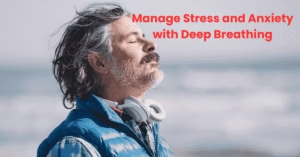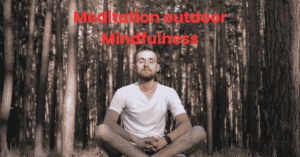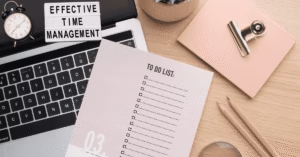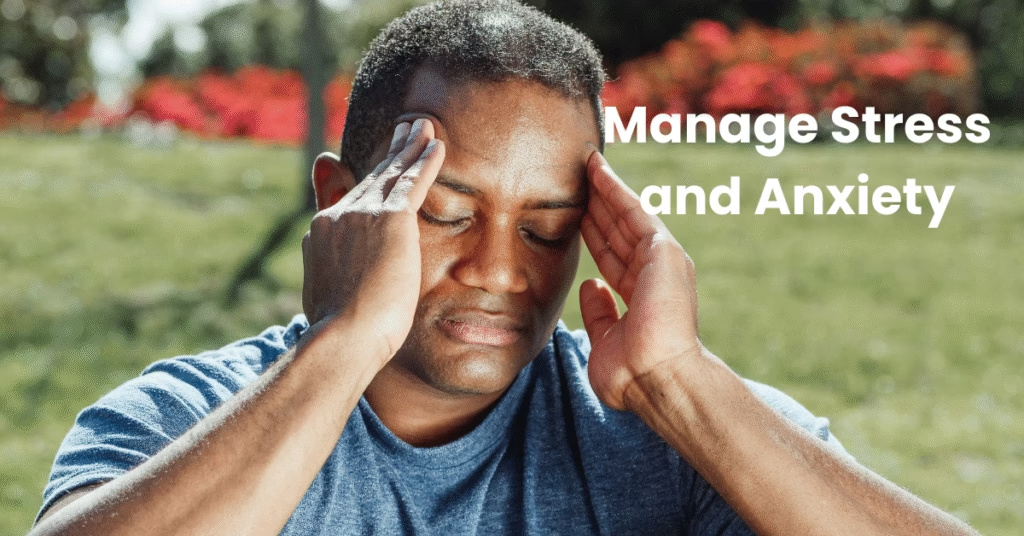Best way to manage stress and anxiety techniques are more crucial today than ever before. In today’s busy world, it’s so simple to become bogged down by work, family, and digital distractions. Stress in small doses is natural and even invigorating, but it becomes a destroyer of mental and physical health when chronic.
The good news is that with the proper strategies, you can get back in control, decrease anxiety, and have a clearer mind. In this blog post, we will discuss the Best ways to manage stress and anxiety with easy-to-do, practical tips.
Table of Contents
Why the Best Ways to Manage Stress and Anxiety Matter
Stress management is not just about being relaxed—it’s about safeguarding your health, enhancing productivity, and having more effective relationships.
- Mental health: Averts burnout and depression.
- Physical health: Reduces blood pressure and enhances immunity.
- Productivity: Enhances focus and decision-making.
- Relationships: Fosters effective communication and empathy.
1. Best Ways to Manage Stress and Anxiety with Deep Breathing
One of the most helpful resources is deep breathing. Methods such as the 4-7-8 technique soothe the nervous system and decrease stress hormones.

2. Exercise: Natural Way to Manage Stress and Anxiety
Exercise releases endorphins, or “happy hormones.” Even a daily 30-minute walk can significantly decrease levels of anxiety.

3. Balanced Diet: Best Ways to Control Stress and Anxiety
The food you consume influences your mood directly. Foods with nutrients regulate energy and soothe the mind.

4. Sleep: Essential for Managing Stress and Anxiety
Good sleep (7–9 hours a night) recharges the brain, enhances concentration, and lessens irritability.
5. Mindfulness and Meditation as the Best Stress Management Tools
Mindfulness assists you in staying present. A mere 10 minutes of meditation every day can ease overthinking and worry.

6. Stay Connected with Family and Friends
Converse with loved ones for emotional support, which is one of the greatest natural means of managing stress and anxiety.

7. Limit Screen Time and Social Media
Overload of digital information heightens anxiety. Establish time limits and prioritize uplifting, positive material.
8. Effective Time Management to Reduce Stress
Prioritizing tasks and structuring responsibilities avoids feeling overwhelmed.

9. Journaling: Writing as Stress Therapy
Maintaining a gratitude or worry journal is one of the best ways to reduce stress and anxiety.
10. Cut Down on Caffeine and Alcohol
Substituting these with water or herbal teas lowers jitteriness and anxious thinking.
11. Relaxation Techniques for Anxiety Relief
Progressive muscle relaxation, visualization, and aromatherapy can all help reduce tension.
12. Seek Professional Support
Therapy, counseling, or medical guidance may be necessary if anxiety disrupts daily life.

Lifestyle Habits for Stress-Free Living
- Stay organized
- Laugh often
- Spend time outdoors
- Practice self-compassion
Frequently Asked Questions (FAQ)
Q1: What is the fastest way to reduce anxiety?
Deep breathing or grounding exercises are instant, useful tools.
Q2: Can diet really reduce stress?
Yes—food with nutrients controls mood and enhances brain functioning.
Q3: How can I stop overthinking at night?
Journaling, mindfulness, and a soothing bedtime routine help.
Q4: Is exercise better than meditation?
Both are effective; combining them is the most powerful strategy.
Q5: When should I seek professional help?
If stress impacts work, relationships, or health, see a doctor or therapist.
Internal References. Read More
External References
Conclusion
The key strategies to prevent and relieve stress and anxiety are small everyday habits of deep breathing, regular physical exercise, good nutrition, adequate sleep, and mindfulness. Integrating these habits with the help of friends and family when required can establish a harmonious and peaceful life.
Consistency beats perfection. Begin with one or two strategies today and gradually develop a routine that aids long-term peace and contentment.





